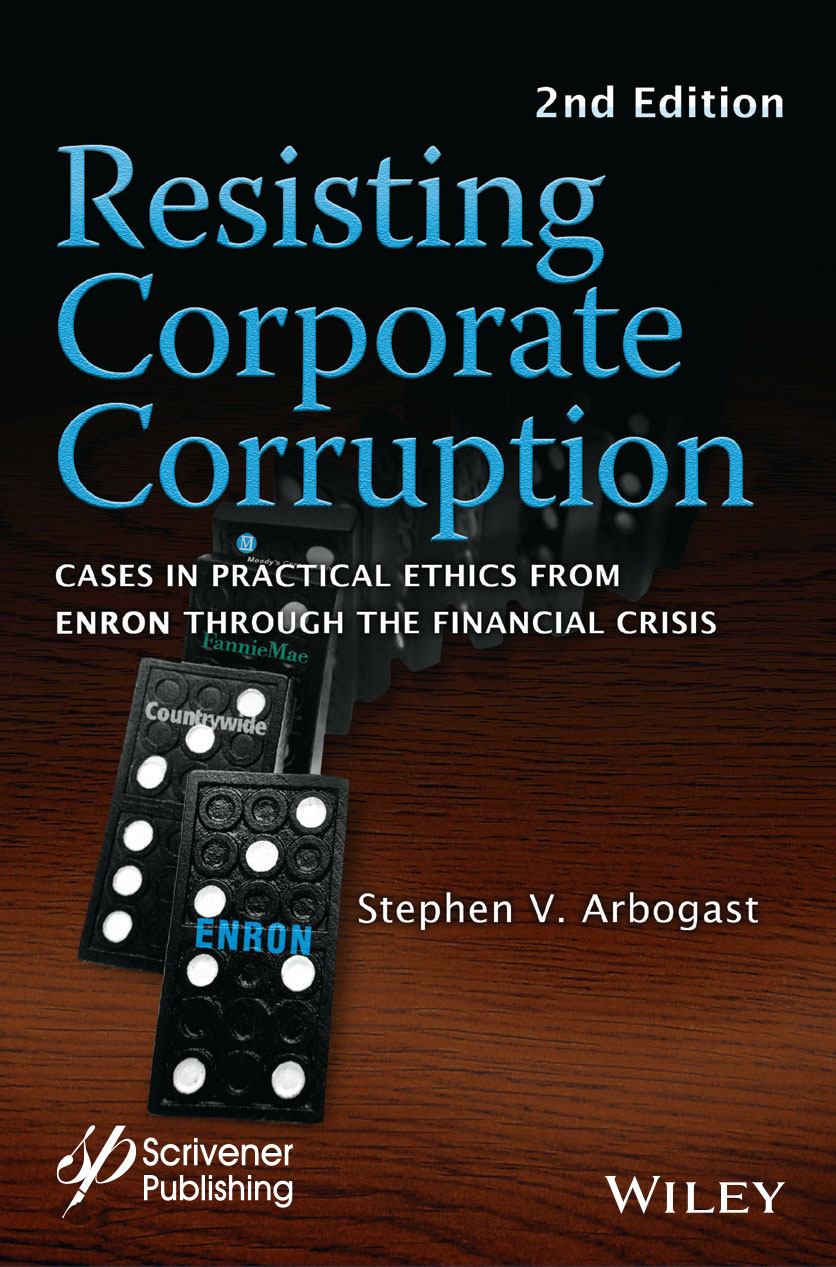Publications
Resisting Corporate Corruption

Resisting Corporate Corruption: Cases in Practical Ethics From Enron: Through The Financial Crisis’s seeks to enhance the teaching of business ethics by adding challenging, real world case studies to the conceptual/legal course work found in graduate schools. After completing these case studies, students should possess a “practical toolkit” that better enables them to follow their moral compass. The book offers 25 case studies that cover a full range of business practice, controls and ethics issues. The cases are framed to instruct students in early identification of ethics issues. They then concentrate on the tactics and communications skills needed to work such problems effectively within corporate organizations. Several cases present executives embedding ethical approaches inside alternative business strategies, redirecting pressures from the boss to less vulnerable 3rd parties, and using the firm’s controls structure to counteract corrupt practices. Other cases examine the circumstances faced by whistleblowers, along with the enhanced legal protections they now enjoy. The book’s first fourteen cases examine Enron’s crossing of various ethical lines from 1987-2001. Eleven new cases present key financial crisis moments at Countrywide, Fannie Mae, Citibank, Goldman Sachs and PriceWaterhouseCoopers. Interpretive essays discuss the nature of sound financial controls systems, the lessons of Enron, and the extent to which the financial crisis shows Enron’s issues to be unresolved.
Read More in the Resisting Corporate Corruption Information Document
Book reviews
Geoffrey C. Hazard, Jr.
Professor of Law, Hastings College of the Law, University of California, and Professor of Law, University of Pennsylvania, December, 2008
This admirable “case study” of the internal decay and ultimate collapse of Enron is an excellent text for a Business School course in management and a valuable supplement for a Law School course in legal ethics in corporate settings.
The author, Stephen Arbogast, is Executive Professor of Finance at the University of Houston’s Bauer College of Business. For many years he was a financial officer and then Treasurer of ExxomMobil. He lays out the series of 17 specific decisions within Enron, over more than a decade, that gradually compromised and eventually destroyed the company’s internal controls. That in turn required falsification of its public financial reporting, which combined with internal corruption to destroy the company.
Professor Arbogast’s basic points are that:
- Internal managerial and financial integrity, “corporate ethics,” is not “do good” ethical window-dressing but is essential for business success.
- Ambitious managers at all levels are under continual incentives to deviate and evade controls, requiring pro-active counter-strategies that “trust and verify.”
- Managerial integrity must be continuously demonstrated by top management and monitored through controls sustained at all levels.
Professor Arbogast brings to bear long practice experience, technical accounting expertise, a sharp mind, and a clear writing style. His exposition is straightforward and his messages plain. The Enron debacle is illustrative of similar management catastrophes in production and financial organizations, now all too familiar. The author shows how the Enron collapse was not sudden and that it would not have been surprising to competent management.

